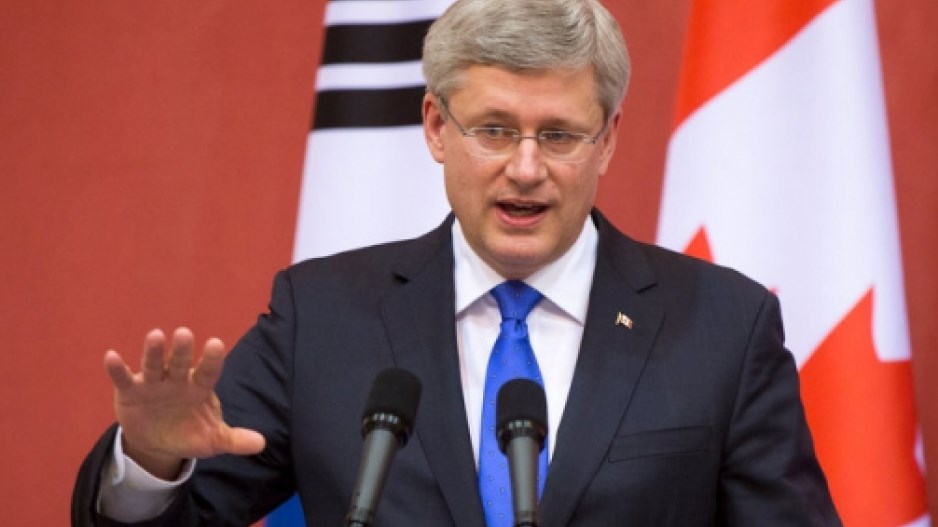Prime Minister Stephen Harper announced March 11 that negotiations have been concluded on a free trade agreement between Canada and South Korea.
This will mark the first such agreement between Canada and an Asian market.
The agreement will see Korea removing 98.2% of its tariffs, which will affect “virtually all” imports from Canada, the federal government said in a release.
“Our Government recognizes the importance of opening new markets for Canadian goods, services and investment which is why we launched the most ambitious trade agenda in Canadian history,” Harper said.
“Not only will it benefit Canadian consumers, it is good news for farmers, the aerospace industry and the chemicals sector, to name a few.
“Canadian businesses, investors and consumers in every province stand to benefit significantly from the increased market access that the Agreement will provide.”
Many business groups are applauding the agreement, including the Mining Association of Canada (MAC), which said South Korea is a significant market for Canadian mining products. In particular, the reduction in tariffs – which are at least 8% on metals including nickel, iron and aluminum – will provide strong benefits to the industry.
“Given the global nature of our sector, the Canadian mining industry is highly supportive of the formation of new trade agreements,” said Pierre Gratton, MAC president and CEO.
“The mining industry welcomes today’s announced free trade agreement with South Korea given the region’s importance as a sizeable market for many Canadian mineral and metal exports.”
MAC, in a March 11 press release, said the total value of mining exports to South Korea was worth more than $1.8 billion.
David Lindsay, president and CEO of the Forest Products Association of Canada (FPAC) also expressed his approval of the agreement.
“The hundreds of communities across Canada who depend on a strong forest products industry benefit from a strong export agenda,” Lindsay said.
“The signing of this deal will help the forest products industry continue to diversify its markets.
“We encourage the government to continue advocating for more open international relations, freer trade and the necessary infrastructure to support a strong export agenda."
In 2012, exports of forest products to South Korea were worth over $500 million, making the Asian country Canada’s fourth largest export market.
Not everybody is happy with the deal.
Unifor, Canada’s biggest union, has expressed its opposition to the agreement, saying it will damage the auto sector in this country, just as it is regaining momentum that it lost in the past several years.
“We cannot stand by a deal that allows Korean car makers to flood Canada, while doing little or nothing to get our cars into Korea,” said Unifor national president Jerry Dias
“If Korean companies want to sell more in Canada, they should be required to make those cars here.”
The union had made suggestions before the agreement was signed as to what should have been included in the agreement to make it fair, which included requiring Korean firms to link tariff reductions to targets that would reduce trade imbalances, investing in and creating jobs in Canada as a condition of allowing tariff-free access, and empowering the government to intervene in any trade imbalances.
Dias said that none of these recommendations were implemented in the agreement.
“The problem is that Prime Minister Harper did not address the current trade imbalance,” he said.
“We needed our political leadership to broker a deal that addressed the reality that we have 100,000 Korean-made cars being imported to our market, while we are exporting only 100 cars to the Korean market.”
The government said that total trade between the two countries was approximately $10.1 billion in 2012. A March 11 Unifor release said that this consisted of exports to Korea of $3.7 billion, and imports of $6.4 billion.




